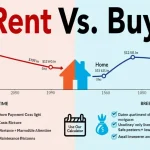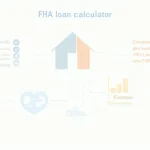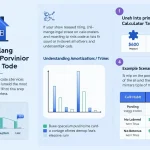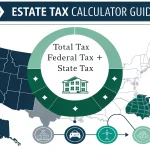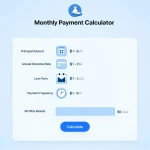Equity Build-Up Rate Calculator
Is this tool helpful?
How to use the tool
- Type the Mortgage Principal Paid (Year 1). Example: $10,500 or $13,750.
- Enter the Initial Cash Invested (Year 1)—down payment, closing costs, fees. Example: $70,000 or $80,000.
- Press Calculate. Your Equity Build-Up Rate appears instantly.
- Multiply the decimal by 100 to show a percentage (0.1500 → 15.00%).
Formula
$$ \text{Equity Build\!-\!Up Rate}= rac{\text{Mortgage Principal Paid (Year 1)}}{\text{Initial Cash Invested (Year 1)}} $$
Example 1
- Principal paid: $10,500
- Initial cash: $70,000
- Rate: 10,500 ÷ 70,000 = 0.1500 → 15.00 %
Example 2
- Principal paid: $13,750
- Initial cash: $80,000
- Rate: 13,750 ÷ 80,000 = 0.1719 → 17.19 %
Quick-Facts
- Conventional loans require as little as 3 % down (Fannie Mae Selling Guide 2023).
- Closing costs run 2-5 % of purchase price (Bankrate, 2023).
- Only 8 % of a first-year 30-year payment goes to principal at 6 % APR (CFPB, 2022).
- Analysts label ≥12 % equity build-up “strong” (BiggerPockets, 2023).
FAQ
What is the Equity Build-Up Rate?
The rate shows how much of your upfront cash becomes ownership through principal pay-down in the first year.
How do I read the result?
A 0.14 value equals 14 %. You gained $0.14 of equity for every dollar you invested.
Can the rate ever exceed 100 %?
No. Year-one principal cannot surpass the cash you invested.
How can I raise my rate?
Pay extra toward principal; Fannie Mae notes, “Borrowers may prepay principal without penalty” (Fannie Mae Selling Guide 2023).
Does loan length matter?
Yes. A 15-year loan shifts more payment to principal early, lifting the rate (CFPB, 2022).
Is the calculator suitable for commercial deals?
Yes—enter the building’s first-year principal and cash at close; the formula stays identical.
Will refinancing reset my calculation?
Run the tool again using the new loan’s first-year principal and any additional cash paid at closing.
How often should I recalculate?
Update annually to track progress and compare against the 12 % national benchmark (BiggerPockets, 2023).
Important Disclaimer
The calculations, results, and content provided by our tools are not guaranteed to be accurate, complete, or reliable. Users are responsible for verifying and interpreting the results. Our content and tools may contain errors, biases, or inconsistencies. Do not enter personal data, sensitive information, or personally identifiable information in our web forms or tools. Such data entry violates our terms of service and may result in unauthorized disclosure to third parties. We reserve the right to save inputs and outputs from our tools for the purposes of error debugging, bias identification, and performance improvement. External companies providing AI models used in our tools may also save and process data in accordance with their own policies. By using our tools, you consent to this data collection and processing. We reserve the right to limit the usage of our tools based on current usability factors.


